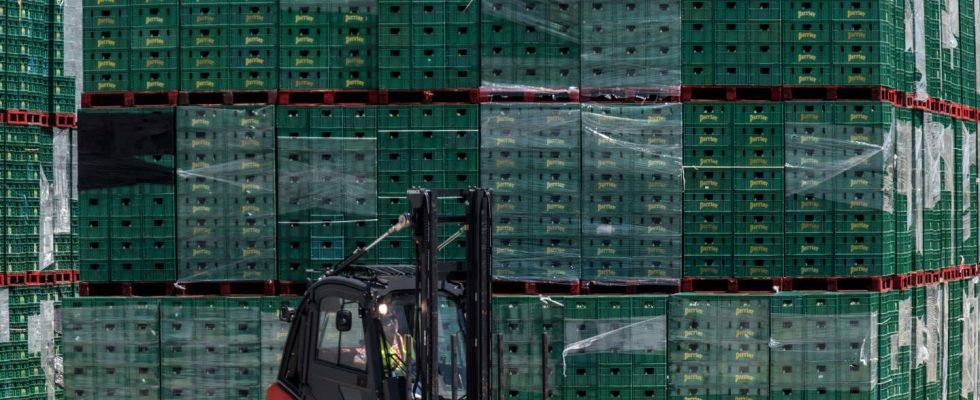The French mineral water crisis has reached a new milestone. The Nestlé Waters company announced, to Franceinfo and World, Wednesday April 24, having destroyed “as a precaution” two million bottles of its Perrier brand, due to the presence of bacteria of fecal origin in one of the wells operated by the Swiss firm on its Vergèze (Gard) site. According to Nestlé, this situation is the consequence of heavy rains from storm Monica, which affected the department in March.
In a decree dated April 19 obtained by the AFP, that The world was able to consult, the prefect of Gard gave formal notice to the company “suspend without delay” the exploitation of one of its seven Vergèze catchments, the latter having presented “ an episode of contamination from March 10, 2024 and over several days by germs witnessing contamination of fecal origin (coliforms, Escherichia coli) but also by germs of the species Pseudomonas aeruginosa ». The order also emphasizes that contamination of bottled water “may pose a risk to the health of consumers”.
Presented as a one-off event by the prefecture and the Swiss firm, the situation – unprecedented – is the consequence of a general deterioration in the quality of the groundwater exploited by Nestlé on the site. In August 2021, anticipating the imminent results of an investigation by the Directorate General for Competition, Consumer Affairs and Fraud Control, Nestlé managers requested a meeting with the cabinet of Agnès Pannier-Runacher, then Minister Delegate in charge of Industry, in order to admit to using prohibited treatments – microfiltration, UV filters and activated carbon – to deal with repeated or chronic, bacterial or chemical contamination on some of its wells. In Vergèze (Gard) but also on its Vosges sites, where the waters of Hépar, Contrex and Vittel are drawn.
The government has relaxed regulations on microfiltration, allowing these treatments to continue. And this at the risk of uncertainty over the legality of maintaining the name “natural mineral water” – these highly valued waters being supposed to come from perfectly preserved sources, and not to have undergone disinfection, like water from faucet, for example.
The other purification techniques had to stop. Contacted by the regional health agencies (ARS) of Occitanie and Grand-Est, the National Agency for Food, Environmental and Occupational Health Safety (ANSES) expressed concern, in a confidential note postponed in October 2023, of the consequences of the interruption of these treatments, considering that the “sanitary quality” water produced in France by the Nestlé group was not “not guaranteed”.
You have 54.01% of this article left to read. The rest is reserved for subscribers.

